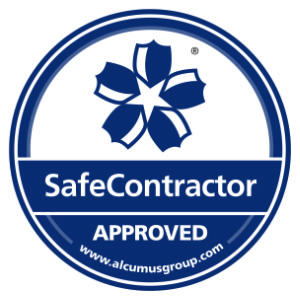Wired vs Wireless Nurse Call System?
A question we here so many times. Should I go for a wired nurse call system or would wireless be better?
Ask most manufacturers and they will of course offer an opinion somewhat biased towards the product they are selling.
As we offer both wired AND wireless systems we are in a position where we can offer an unbiased opinion on the merits of both.
Each system has its advantages and disadvantages within each situation. Here we try to give you the pros & cons of both types of system allowing you to make an informed choice.
There is a general rule we apply when we advise customers, and stress this is a generalisation and not a hard and fast rule.
If you are installing into a new build, go for wired.
If you need to install into existing, operating premises then go for wireless.
Let’s expand on that…
If you can withstand the hassle and the upheaval required to install cables, then we would suggest that wired is probably the best option. Once this is out of way, then a wired system will usually require less on-going maintenance effort.
If you cannot bear the thought of contractors camping out for a week or two in your premises, and getting in the staff’s way, then a wireless system may be the option for you.
However, by avoiding the installation pain, there is a trade-off, and that is a slightly elevated level of ongoing maintenance.
Comparison of typical prices for a 10 bed care home with en-suite bathrooms (for comparison purposes only)
Wired £2,700 + VAT
Wireless £3,200 + VAT
Do not underestimate how much work there is cabling for a wired nurse call system.
There are 2 options with a wired nurse call system – hide the cables in the walls and ceiling or use mini-trunking.
The first option is hiding the cables provides a neater installation, but this can involve lifting carpets and floorboards, chasing out the wall, chiselling out holes for back boxes – and there is of course the mess associated with this. Then there is the re-decoration.
Are you even able to get the resident or patient out of the room for long enough while this work is undertaken?
Then there are cables to rundown corridors – installation engineers in corridors with ladders and rolls of cable whilst staff are trying to get residents to dining rooms and lounges.
The second option is trunking. Sometimes this is the only method available as the level of dust raised whilst chasing walls is unacceptable. If our engineers undertake this method, where possible, we use the smallest, low profile trunking that we can, sadly this still isn’t visually attractive.
Another point to consider for wireless systems is the advantage they have over the ease of making changes and modifications.
If there’s a need to change the room layout, to accommodate a twin room for example, then a wireless nurse call has the obvious advantage. All that’s required is to unscrew the room unit from the existing position and relocate in the new one.
Wireless Nurse Call is OK for use in hospitals.
Many trusts have realised that there is an alternative to usual suppliers of hospital nurse call systems.
Almost all the wireless nurse call systems we supply are HTM 08-03 compliant, making these systems a viable alternative, not only as temporary systems, but also as a permanent fixture, not just for cost saving, but for all the reasons outlined in this post.
Wireless System Advantages
Having somewhat laboured the point that installing a wired system is not for the faint hearted, let’s look at the advantages of a wireless system.
For a start, most systems can be installed, configured and commissioned in a single day (perhaps a bit longer for a larger, more complex system).
We mentioned ongoing maintenance. The wireless nurse call systems that we offer have a battery life of about 14 months of normal use. For our service contract customers we offer an annual full battery change. So, apart from any call points that have excessive use, battery changing is an issue that goes away.
If the system is designed & installed properly in the first place, then there should be no call points in areas where the radio signal strength is marginal.
At GD Systems, we always carry out a full radio survey and install signal boosters where required.
By ensuring the system is correctly installed and maintained, then any potential concerns or issues with wireless systems can be minimised.
There are some instances where wireless nurse call is not appropriate – In mental health applications for example..
The very thing that is usually an advantage becomes a problem in these instances, in that where a call point is easy to install, it is just as easy to uninstall.
Read our Guide to wireless nurse call


